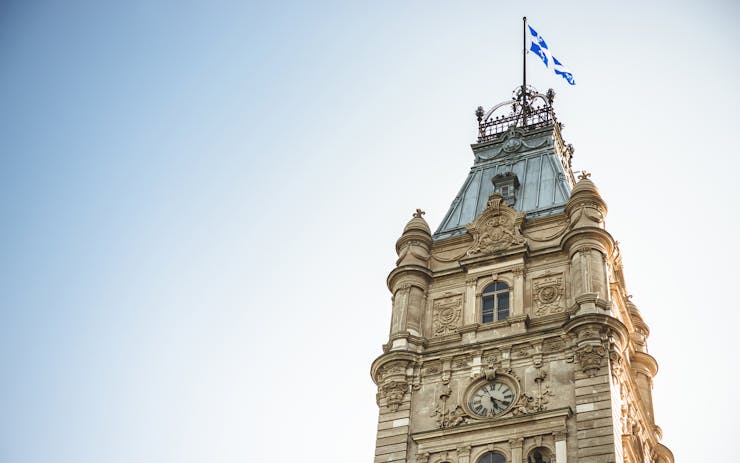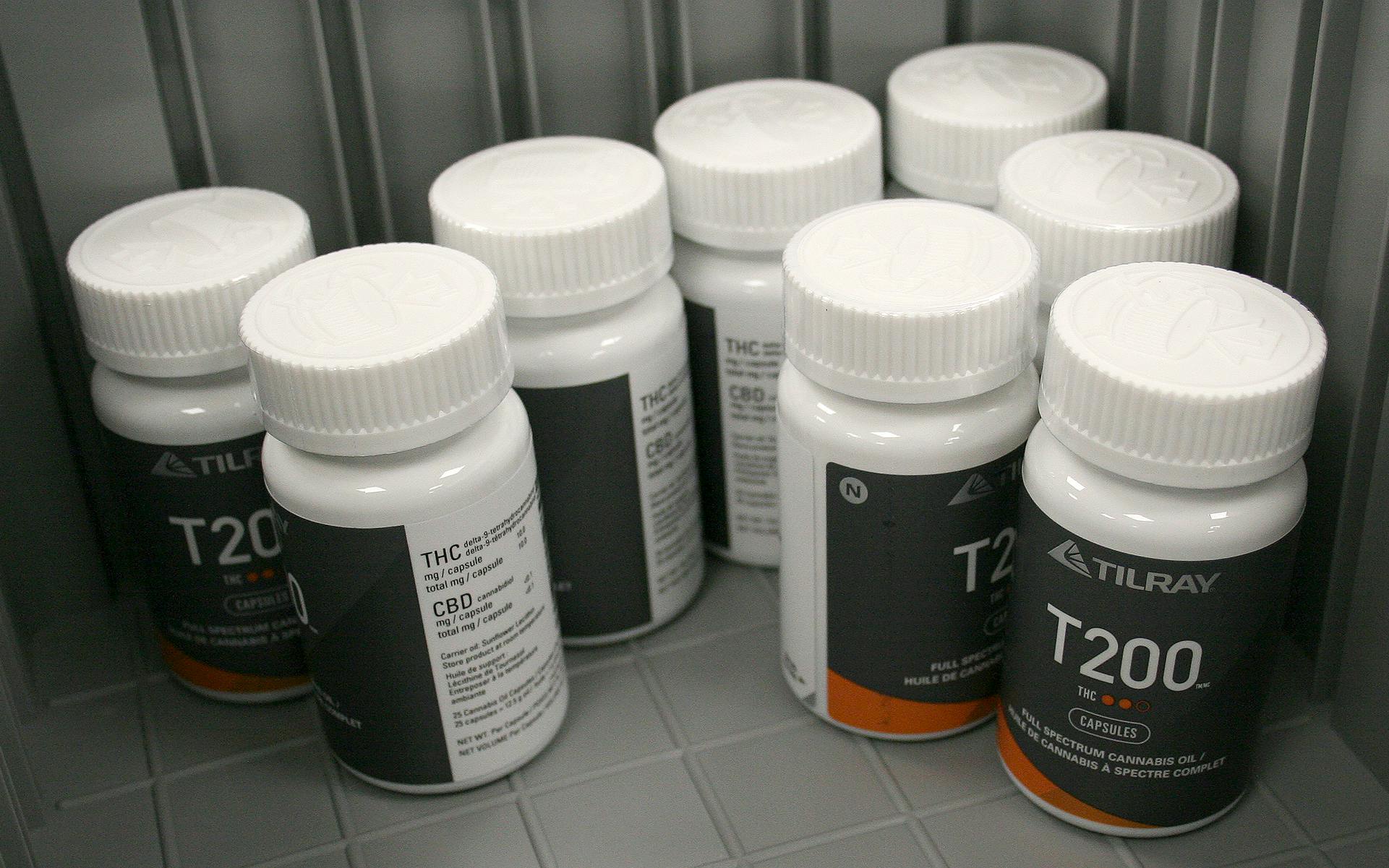Quebec does things differently, for better or for worse. As everyone knows who has moved to Quebec from another province only to discover they now have to file two sets of taxes, this is a province that prefers to maintain control of its affairs. As Quebec approaches cannabis legalization, that habit is once more evident.
In spite of its late-night joie-de-vivre image, Quebec has significantly less enthusiasm toward legal cannabis than anywhere else in Canada.
Already, Quebec is an outlier in the field of cannabis. In spite of its late-night joie-de-vivre image, Quebec has significantly less enthusiasm toward legal cannabis than anywhere else in Canada. In May, a CROP poll conducted on behalf of Radio-Canada revealed an inversion of national attitudes toward legal cannabis in Quebec. Only 40% of respondents were in favour of legalization, while outside of Quebec 58% support the move. Meanwhile, only 27% of respondents supported the sale of edible cannabis products, compared with 40% of respondents outside of Quebec.
There are a variety of theories for this lack of support, most prominent among them the possibility that reduced French-language media coverage of US recreational markets has prevented potential supporters from seeing the benign results of a legal recreational system in action. Others argue that the drive to decriminalize as a means of undermining organized crime receives less support in Quebec because of a deep cynicism across a province marked by decades of organized crime scandals at its highest levels of government (present and past). Perhaps Quebeckers are too fatalistic to imagine anything will hobble organized crime.
These attitudes may reflect the fact that Quebec is the only province in which charges for cannabis possession and trafficking have actually continued rising in recent years. Though the fleur de lys and the cannabis leaf were once inseparable in many Canadians’ minds, the province’s days of official laxity toward cannabis prohibition began changing two decades ago.
Quebec is the only province in which charges for cannabis possession and trafficking have actually continued rising in recent years.
In the mid-1990s, Quebec issued 30% fewer possession charges per capita than anywhere else in the country, but by the end of the decade, official attitudes hardened into the present counterintuitive legal direction. Across the country, possession charges have drastically declined over the last year alone, yet according to the CBC, possession arrests and charges in Quebec are unchanged since 2015, following an upward trajectory that began in 1998. In 2016, Quebec charged 36% more people per capita with possession than anywhere else in Canada.
This is the atmosphere that shrouds the ongoing debate over how Quebec will approach its end of legal cannabis. Yes, it will certainly legalize its own way—but the National Assembly spent the month of September in deep debate about what that way should be.
The Age Issue
Despite Quebec historically offering the youngest legal age in North America for alcohol consumption (18), the Coalition Avenir Québec (CAQ), the most conservative of the province’s four major parties, argued that Quebec’s legal age for cannabis use and purchase should be 21. Ontario, immediately to the west, had already decided its legal age will be 19, the same as its drinking age, which many have argued will simply drive cannabis business an hour out of Montreal to the Ontario border for those not yet 21.
Liberal government sources confirm that Quebec’s legal cannabis consumption age will be 18.
Quebec Premier Philippe Couillard, of the provincial Liberal party (somewhat less conservative than the CAQ), responded to CAQ leader François Legault’s demand by saying, “Does he seriously think he will prevent youths from 18 to 21 from smoking pot? Get real. I think they are smoking already and will continue to smoke.”
The Liberals spent the month leaning toward offering cannabis for sale to those aged 18 and up, in line with the guidelines of the Canadian Pediatric Society, which does not believe cannabis presents significant risk to the mental development of people over that age. Medical-specialists’ group Le Fédération des médecins spécialistes du Québec, meanwhile, argued the age should be 21.
They were supported by the Canadian Medical Association Journal, which published an editorial in May by the Journal’s interim director Dr. Diane Kelsall arguing that “the act’s provisions appear starkly at odds with the objective [of health and public safety], particularly for Canada’s youth.” In a follow-up interview with the CBC, Kelsall said, “We’re just very worried that we’re conducting a national experiment and unfortunately the guinea pigs are kids.”
This position was supported by CBC Radio personality Dr. Brian Goldman, host of popular medical show, White Coat, Black Art. In a blog post titled “Why Legal Marijuana Will Hurt Our Kids,” Goldman suggested that cannabis consumption by people in their 20s is correlated with psychosis—though he also acknowledged, in the same post, that legalization has so far neither increased nor decreased the use of cannabis by young people.
“Canada has one of the highest rates in the world of young people using marijuana,” he explained, in a passage that did not seem to support his argument that legal cannabis would increase harm to young people. “As many as 60 per cent of 18 year olds have tried it at least once…Researchers doubt that bill C-45 or any law for that matter will curb the use of cannabis by young people.”
Dr. Jean-Yves Frappier, a pediatrician specializing in adolescent medicine at Montreal’s Hôpital Ste-Justine, spoke on behalf of the Canadian Pediatric Society. Noting that tobacco and alcohol both have detrimental effects, Frappier said, “We think 18-year-olds should be allowed because you drink, you vote, you can buy tobacco and alcohol.”
“The debate on this issue must be oriented toward the fight against cannabis.”
Frappier underlined that the brain develops much less significantly between the ages of 18 and 24 than during adolescence, and that cannabis’s detrimental effects on brain development are the product of “regular, constant use,” which normally takes time to ramp up, making 18 a medically reasonable time to begin allowing adults to buy and use cannabis. The Canadian Pediatric Society, however, also suggested limits on the potency and amounts of cannabis available to users between the ages of 18 and 21.
On September 29, unnamed Liberal government sources informed Radio-Canada and the CBC that Quebec’s legal cannabis consumption age would be 18.
On hearing the report, CAQ justice critic Simon Jolin-Barrette cried foul, telling the CBC that it would be more beneficial to “start an awareness campaign among young people about the effects of the drug,” rather than making it legal for people to purchase before the age of 21.
Jolin-Barrette was one of the key figures in drafting the cannabis proposal the CAQ unveiled on September 13. Having briefly surpassed the Liberals in popularity this summer, the CAQ remains the most powerful opposition party in the province, and their proposal argues that “the debate on this issue must be oriented toward the fight against cannabis.” The CAQ proposal also demands the Liberal government “take the hard line” in order “to limit the perverse effects of cannabis use.” Claiming cannabis “has adverse health effects,” the CAQ explains that its proposed regulatory framework is designed to “deliberately combat consumption of this drug […and] restrict marijuana use as much as possible.”
Growing Issues
Two weeks ago, La Presse created a stir when they reported that, seemingly following on the CAQ’s call for a “hard line” approach, the Liberal government would not allow citizens to grow marijuana at home, contrary to the federal plan to allow citizens up to four plants of no more than one metre in height. This follows pressure from law-enforcement groups that claim the four-plant limit would be impossible to enforce.
The government has not decided whether to outlaw home growing, but complained that the move toward legalization was happening too fast.
Controversial Liberal Health Minister Gaétan Barrette—a former star candidate for the CAQ—announced that, in fact, the government had not decided whether or not to outlaw home growing, but complained that the move toward legalization was happening too fast.
“I understand the federal government wants to get this out of the way before the election,” he said at the beginning of a two-day Liberal Caucus in mid-September, “but socially it’s going too fast.”
In addition to bemoaning the potential difficulty of governing home cultivation, Barrette complained about the federal plan’s failure to address cannabis derivatives.
“Oils, hashish, pot muffins, you laugh, but there is a wide array of these derivative products,” Barrette said. “A law has to be applicable. How do you control this? It cannot be settled hastily.”
The Parti-Québécois, another opposition party of the centre-left, released a position paper saying that individuals should be limited to two plants, rather than four, and that landlords should have the right to prevent tenants from growing or consuming cannabis on their property.
Quebec's Liberal government has suggested it will set the price for dried cannabis flowers at $7 or $8 per gram.
In mid-September, Ontario—which, unlike Quebec, does not allow the sale of beer or wine in corner stores and supermarkets—announced its plan to offer cannabis only through outlets similar to its Beer Store and Liquor Control Board of Ontario (LCBO) stores. That move has been controversial, but even more controversial is a proposal to offer dried cannabis flowers at a baseline of $10 per gram—a decision that many critics say recreates prohibition pricing.
“[W]hat we want to counter, to halt to the maximum, is the black market,” Quebec Public Health Minister Lucie Charlebois told a press scrum. “So if our prices are not competitive with the black market, we will be in trouble.” To that end, the Liberal government has suggested it will set the price for dried cannabis flowers at a more competitive baseline of $7 or $8 per gram.
Liberal Finance Minister Carlos Leitão stressed throughout the summer that the Québec liquor control board (la Société des Alcools du Québec, or SAQ) would not be tapped to sell cannabis. Unlike other provinces, Quebec allows dépanneurs (corner stores) and grocery stores to sell beer and wine, while spirits and more upmarket wines can only be purchased at government outlets.

(Heidi De Vries/Flickr Creative Commons)
This left convenience-store chain Alimentation Couche Tard angling to enter the cannabis business. The company, which owns nearly 600 Couche Tard and Provi-Soir stores in Quebec, also owns the Mac’s, Circle K, and On the Run brands across the rest of Canada, for a total of some 2,000 holdings.
Couche Tard Executive Chairman Alain Bouchard has criticized the use of Crown corporations to control cannabis, and has hired a lobbyist in the hopes of working his company into the future of Quebec’s cannabis industry. However, he complained in September that the government remained unresponsive.
“They do not even want to talk to us, so I think it is a shame,” Bouchard said to The Canadian Press.
However, if the news affirming the legal age of 18 went according to the party line so far, the same government sources reported a surprising about-face on Leitão’s promise not to sell cannabis through the SAQ liquor-control board. Rather than allow the sale of cannabis alongside alcohol and tobacco in dépanneurs and supermarkets, the province will establish an independent corporation for the sale of cannabis, which will itself be controlled by the SAQ. This, despite an Oracle poll of 5,000 Canadians from September 25, which showed 65% of respondents supported the sale of cannabis from licensed growers in the private retail sector.
There is no word about when the Liberal government will formally table its bill, but it is widely expected to be coming in the month of October.






